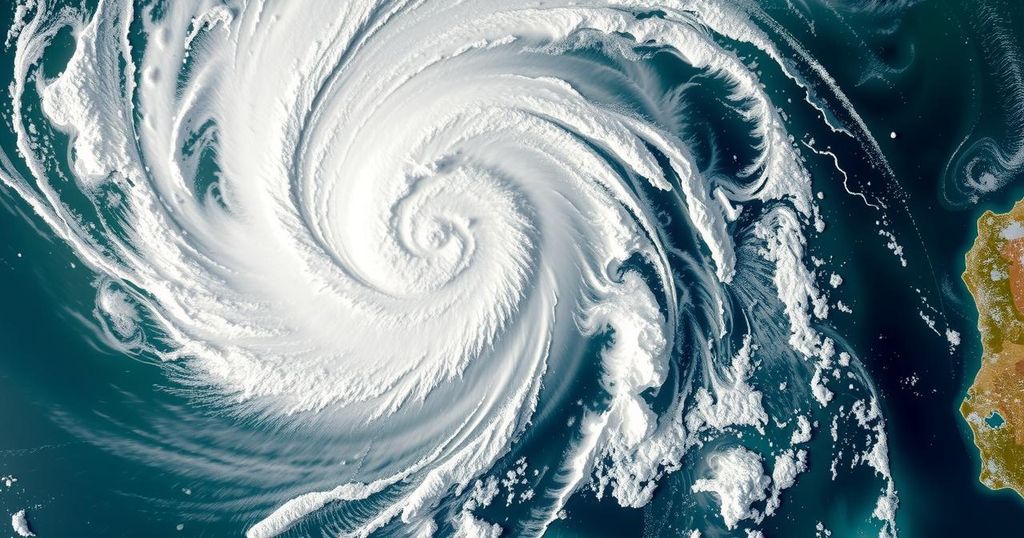Impact of Cyclone Chido on Northern Mozambique: A Humanitarian Crisis

Cyclone Chido recently struck northern Mozambique, impacting 181,554 individuals, primarily women and children. The cyclone has destroyed over 36,000 homes and significantly damaged infrastructure, complicating relief efforts for communities already affected by conflict and forced displacement. The situation remains dire as thousands face renewed hardship in the aftermath of the disaster.
Tropical Cyclone Chido has significantly impacted northern Mozambique, with reports indicating that as of 19 December 2024, approximately 181,554 individuals have been affected. The cyclone has primarily devastated communities in Cabo Delgado, Nampula, and Niassa provinces, leading to extensive destruction of homes and infrastructure. Over 36,000 houses have been reported as either completely or partially destroyed, and the hardest-hit areas are facing considerable challenges in terms of relief and rebuilding efforts due to pre-existing vulnerabilities stemming from conflict and economic distress.
The storm’s rapid onset brought not only intense rainfall but also strong winds that exacerbated the circumstances for thousands already displaced by ongoing conflicts in the region. Many communities, which were hosting around 300,000 individuals who had already been forcibly displaced, now face renewed hardship as Cyclone Chido uprooted what little stability they had managed to establish. The National Institute for Disaster Management (INGD) is continuing to assess the overall damage and coordinate relief efforts in the affected regions, but the immediate effects of the cyclone are already profound and tragic.
Northern Mozambique has been grappling with the dual challenges of natural disasters and persistent conflict in recent years. The arrival of Cyclone Chido comes at a particularly vulnerable time for the population, which has already been suffering from the impacts of conflict and displacement. With a significant percentage of those affected being women and children, the cyclone has further strained already limited resources and support systems in the region, where communities struggle to cope with the aftermath of both climate-induced disaster and human upheaval.
In conclusion, Cyclone Chido’s emergence has inflicted severe damage in northern Mozambique, affecting a large number of individuals and severely disrupting communities already struggling with conflict-related displacement. The estimated 181,554 people impacted includes a significant portion of women and children, underscoring the cyclone’s broader humanitarian implications. As efforts to respond and recover continue, it is essential to consider the existing vulnerabilities that have been exacerbated by this recent disaster, thereby calling for immediate and coordinated action to provide relief and support to the affected populations.
Original Source: reliefweb.int






